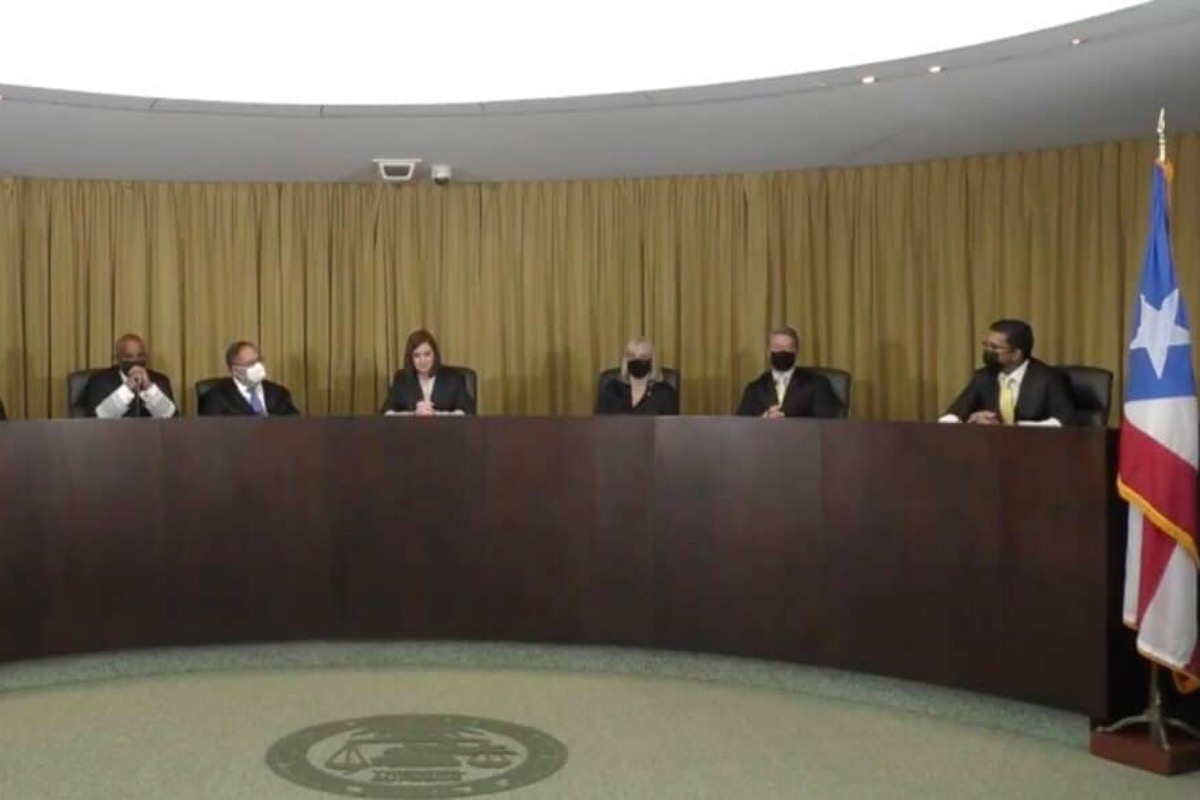

Poder Judicial de Puerto Rico
SAN JUAN — On November 10, a panel of four Supreme Court justices unanimously rejected a petition filed by the Puerto Rico Privacy Association (PRPA), which sought to block the lower court’s decision ordering the disclosure to the Center for Investigative Journalism (CPI, in Spanish) of the annual reports submitted by beneficiaries of the Act to Promote the Relocation of Investors to Puerto Rico, or Act 22, a statute that has been part of the Act 60 Incentives Code since 2019.
The panel was composed of Associate Justice Rafael Martínez Torres, who presided it, and Associate Justices Erick Kolthoff Caraballo, Roberto Feliberti Cintrón, and Angel Colón Pérez.
The CPI requested the reports, which “resident investors” must submit to the Department of Economic Development and Commerce (DDEC) every year as required by Act 22, since April 2021. These reports break down each beneficiary’s personal and financial circumstances, such as the number of jobs created, the properties acquired, and the time spent in Puerto Rico, among other data. The complaint asked for all information not considered personal.
As a result of the most recent court ruling, CPI would receive information regarding the total net worth of resident investors under Act 22, the income that is tax-exempt, if they own or rent any property in Puerto Rico, if they have a business established in the island and the number of days they are on the island, as well as the approximate amount of money spent during the calendar year, and the amount of annual contributions made to local nonprofit organizations as required by the law.
In August 2021, Superior Court Judge Alfonso Martínez Piovanetti ordered the DDEC to deliver the reports, with the exception of certain personal items such as names, physical addresses, social security numbers, and telephone numbers, which would be redacted or removed from the document prior to disclosure, as CPI had requested.
In June 2021, a three-judge panel of the Puerto Rico Court of Appeals affirmed Judge Martínez Piovanetti’s decision in favor of CPI after an intervening party in the case, the PRPA, an organization that claims to represent Act 22 beneficiaries, had filed an appeal.
Judges Laura Ortiz Flores and Giselle Romero García, and Judge Rapporteur Waldemar Rivera Torres comprised the Court of Appeals panel that reviewed Judge Martínez Piovanetti’s decision.
The PRPA, seeking to protect “the expectation of privacy” that Act 22 beneficiaries could have, argued before the Court of Appeals that the reports be turned over only with additional personal data redacted and requested that the information be disclosed only in an aggregated manner.
The Court of Appeals ruled that the PRPA failed to demonstrate “how the constitutional right to privacy can be invoked in the form or format in which said information will be revealed,” particularly when Judge Martínez Piovanetti had already ordered the redaction of personal data from the reports and CPI had recognized in its lawsuit the confidential nature of this information. The Court reiterated that not all the information in the reports can be classified as confidential and that the DDEC’s legal representation had so admitted it.
A CPI investigation published back in June 2021 found that this incentive has barely achieved any job creation and has had a minimal economic impact when examining a random representative sample of 304 beneficiaries, which constituted 10 percent of the 3,040 active Act 22 decrees at the time of said analysis. For almost eight years, there had not been any oversight by the authorities over these tax decree holders and their compliance with the law.
The Inter-American University Law School’s Legal Aid Clinic and its attorneys Luis José Torres Asencio, and Steven Lausell Recurt, as well as CPI counsel Carlos Francisco Ramos Hernández, represented CPI in this case.


